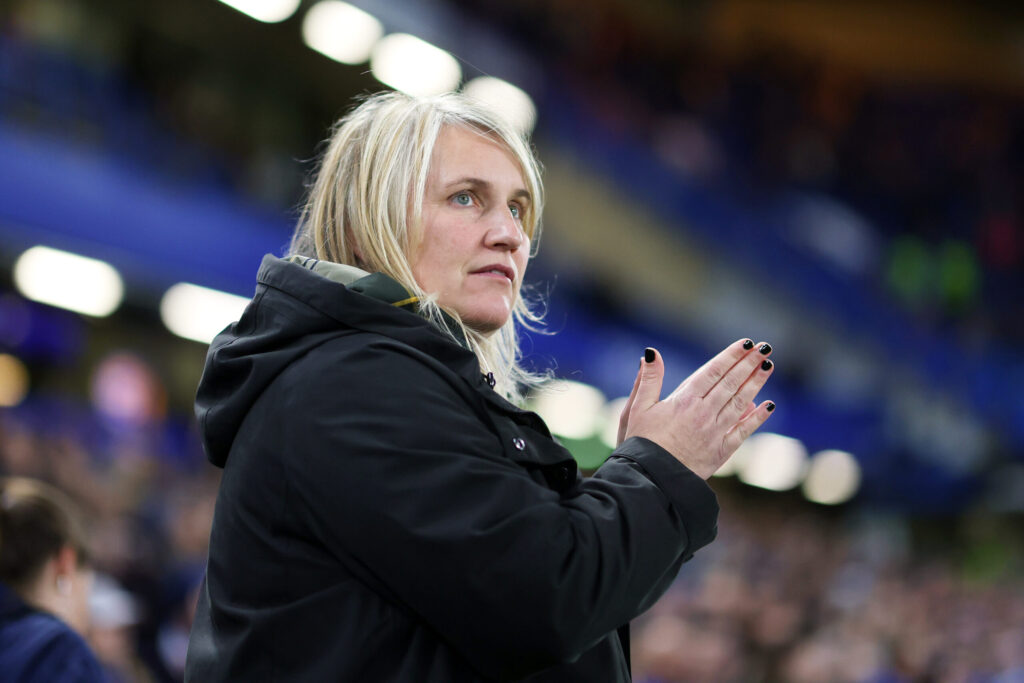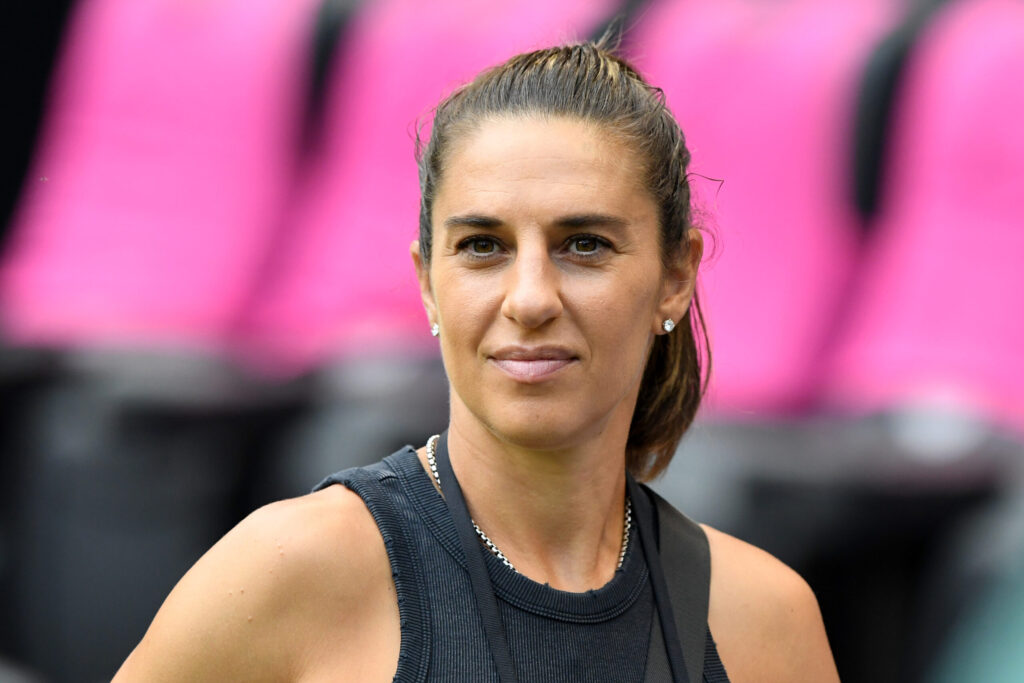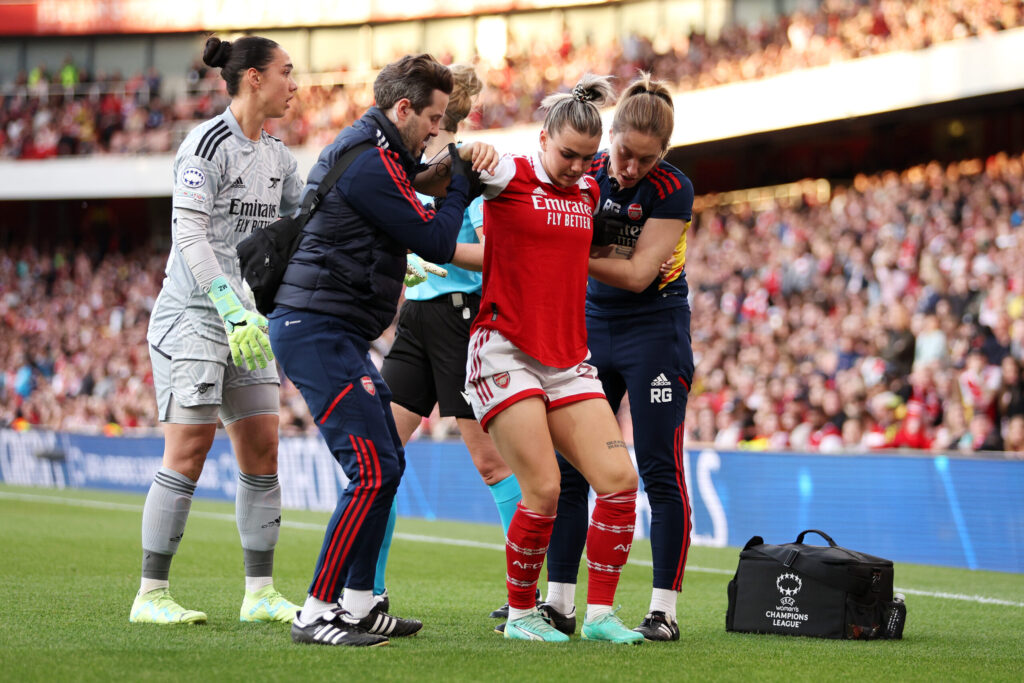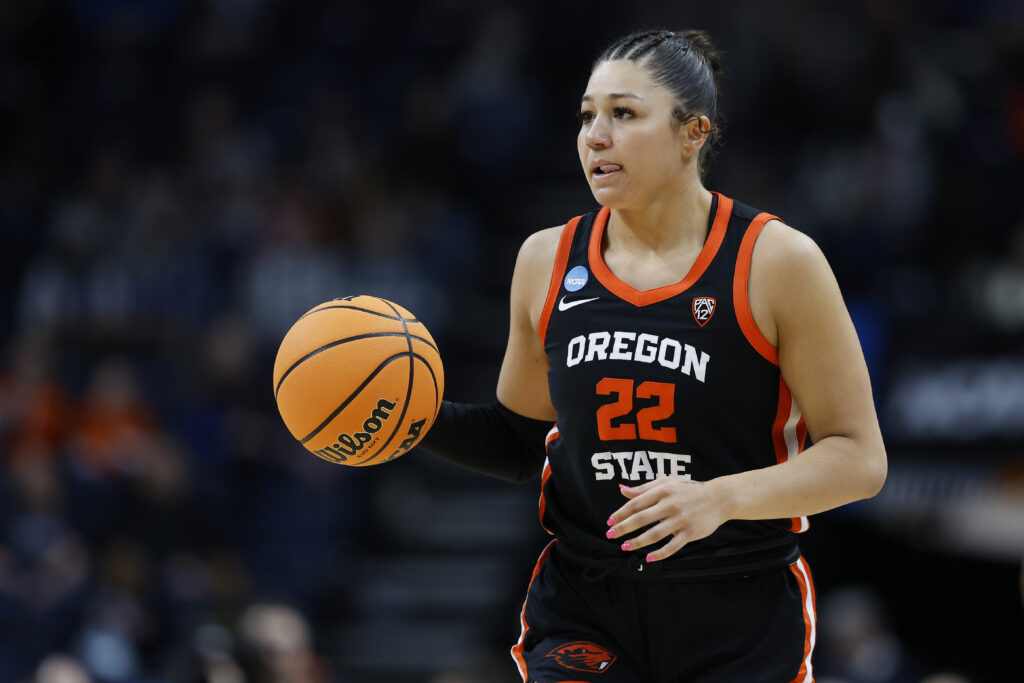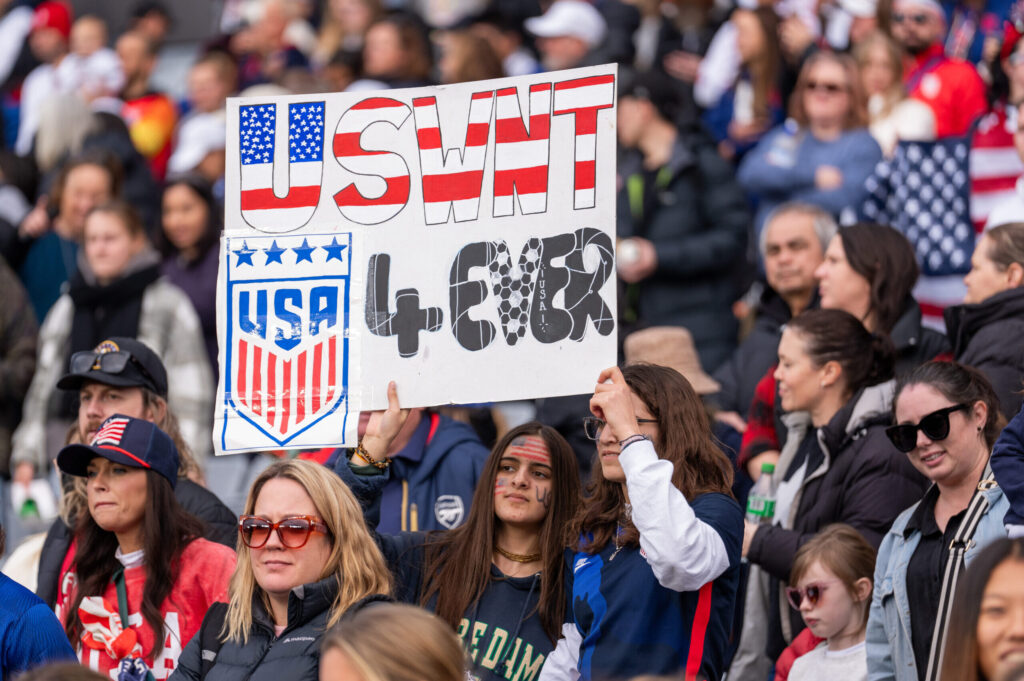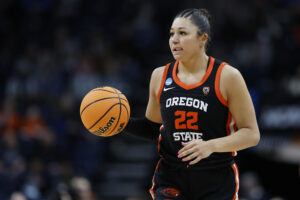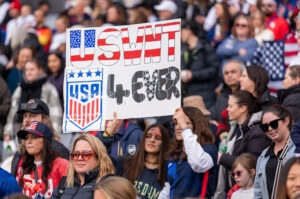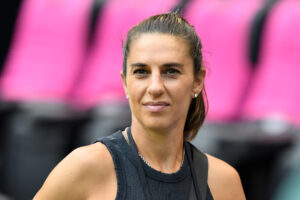U.S. women’s national team fans got an unexpected piece of welcome news on Saturday, as multiple reports linked longtime Chelsea manager Emma Hayes to the open head coaching position for the former No. 1 team in the world. Hayes has been confirmed to leave Chelsea at the end of this WSL season, at which point she is expected to lead the USWNT to the 2024 Olympics.
Hayes was not on the shortlist reported by The Athletic last month, which named Australia’s Tony Gustavsson, OL Reign’s Laura Harvey and Juventus’ Joe Montemurro as the three preferred candidates for the job. But to many, she’s seen as the best hire U.S. Soccer could have persuaded to make the jump.
Hayes has won six WSL titles with Chelsea, including the past four years running. She’s also won five FA Cups, two League Cups and one Community Shield. She became the face of the sport’s evolution in England, both as a trailblazer in convincing one of the country’s top clubs to invest in the women’s game and as a manager who maintained an advantage as others followed suit.
Hayes brings a critical eye to a U.S. team at a crossroads. The USWNT’s development and tactical style have struggled to keep the world at arms length, as the global game catches up in women’s national team investment. Here’s what the USWNT can expect from their anticipated hire.
Right coach at the right time
Hayes has a familiarity with the American development pipeline and league systems, without being too close to the program to make bold decisions. One concern about an NWSL hire like Harvey was that coaches with preconceived notions of the USWNT hierarchy might be reluctant to make the necessary changes to push the team into a new era of women’s soccer.
In her time at Chelsea, Hayes seemed to have an eye for emerging superstars, famously recruiting Sam Kerr from the NWSL in 2019, and has always looked for American talent like Crystal Dunn in 2017 and most recently bringing in Americans Catarina Macario and Mia Fishel. She demonstrated an understanding of North American soccer, signing top Canadians Ashley Lawrence and Jessie Fleming as well.
Hayes also has experience coaching in the U.S., managing the Chicago Red Stars in WPS from 2008-10 and serving as technical director for the Western New York Flash and a consultant for the Washington Freedom. She returned to England without an incredible resume — she registered a 23% win percentage in her time in Chicago — but her growth as a manager since then sets her up to return with valuable experience.
If USWNT fans grew impatient with Vlatko Andonovski’s rigidity in his four-year stint with the team, they have reason to be excited for what Hayes brings. Her Chelsea teams are a testament to her willingness to try new things, both in personnel and the team’s style of play. She’s tried the Chelsea defense in both a four- and a three-back based on available players, and she can push the team into a high-flying attack against a bunker but isn’t unwilling to prioritize full-team defense against top competition.
That openness in philosophy should serve Hayes well at the international level and offset some of the perennial concerns of a club manager making the leap to a national team. The nature of the two jobs is very different. Hayes will have to get used to implementing her ideas in just a few weeks out of the year, compared to many months at the club level. She will also have to adjust to the scouting realities of a national team manager, no longer able to compile talent from other countries the way she’s done so well with Chelsea.

History has a way of repeating itself
Hayes’ club record also provides a certain amount of intrigue, especially in the context of her predecessor. Coaching the USWNT requires many jobs within one — managing superstars and bubble players alike, having an eye on the development pipeline to maintain the health of the program and winning. U.S. Soccer and USWNT fans have both felt the conflict between the team trying to reinvent itself while also refusing to drop friendlies against top opponents. Hayes will be a perfect fit for the latter assignment; her Chelsea teams dropped very few games in which they were favored.
But Andonovski came into the role with similar club accolades, and in the end he was not the right manager to see the USWNT through knockout matches against the world’s best. And while Hayes has dominated all facets of English football for many years, there is one trophy that continues to elude her. Her Chelsea teams have never won the Champions League, losing handily to Barcelona in the one final they reached under Hayes. She’s not immune to being out-coached in the heat of a must-win game, and her Chelsea teams don’t always start hot out of the gate.
There is also the issue of U.S. Soccer’s reported plan for the build-up to the Olympics, which would require either interim manager Twila Kilgore or a member of Hayes’ new staff to guide the team until Hayes has finished her final Chelsea campaign in May 2024. It appears the U.S. would rather get their preferred candidate for the long-term future than make a hasty hire with the Olympics in mind, but pressure will be on Hayes to communicate her scouting and tactical ideas through the grapevine. Everyone will expect the USWNT to contend for the Olympic gold after a disappointing World Cup campaign.
Unclear communication and a sacrificed major tournament could complicate Hayes’ place in the locker room before she even gets a chance to run the team full-time, especially with a player pool as competitive as the USWNT’s. But her track record of managing those moments is as strong as they come, and if anyone can handle a tricky transition, it would be a coach of her caliber. The U.S. has found their coach, and now it’s time for her to build a team that can contend for glory once again.
Claire Watkins is a Staff Writer at Just Women’s Sports. Follow her on Twitter @ScoutRipley.
